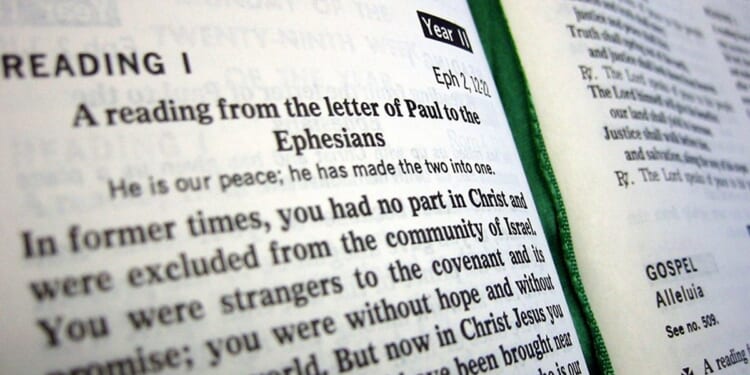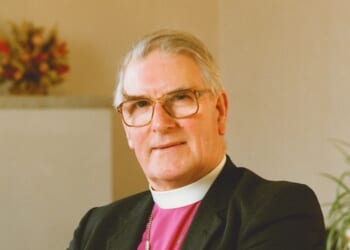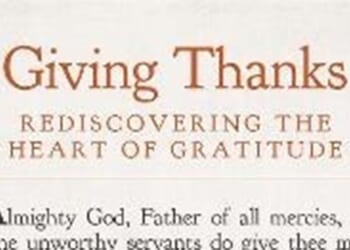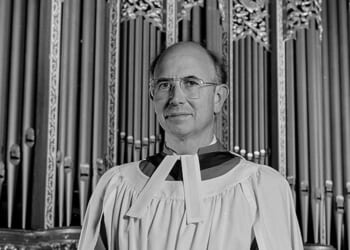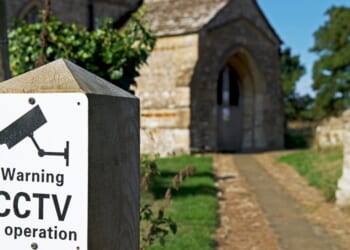Isaiah 2.1-5; Psalm 122; Romans 13.11-14; Matthew 24.36-44
SEARCHING for a good word to describe the drama of Advent Sunday, I was tempted by “cataclysmic”. The “day of the Lord”, the Bible says, will bring darkness, desolation, and destruction. The prophets are particularly energetic in depicting it in terrifying terms. Cruel. Terrible. Dreadful. So, “cataclysmic” seemed to fit the bill.
When I read the Gospel in Greek, however, a penny dropped. “Cataclysm” is not a vague term for disaster: it specifically indicates deluge — a flood. Mortals are busy with eating, drinking, and marrying “before the cataclysm”: they show no thought for God.
As I write, Hurricane Melissa, a category-five storm, is threatening to unleash darkness, desolation, and destruction on the island of Jamaica. Forty inches of rain are predicted to fall within four days. This unfolding horror is, right now, beyond my imagination. By the time you read this reflection for Advent Sunday, those affected by Hurricane Melissa will not need their imagination to picture the cataclysm: the reality of it will be part of their life-experience for ever — if they survive.
Jesus tells us that the coming of the Son of Man will be like the flood in the days of Noah. That flood was not just a weather phenomenon: it was a sign of God’s sorrow and regret (“the LORD was sorry that he had made humankind on the earth, and it grieved him to his heart,” Genesis 6.5). The flood, then, was a negative counterpart to the positive rainbow (Genesis 9.13). Most of us have experienced the pain of proffering care and devotion to someone, but then being hurt by finding that what we bestow is unappreciated, even unnoticed. In the days of Noah, it seems that God, like King Lear, looked at the recipients of his care and devotion, and concluded, “How sharper than a serpent’s tooth it is to have a thankless child.”
Woven through the Noah story is a problem of theodicy (the justification of God to humankind). How can it be right for God to destroy every living thing, in a situation in which not everything, not everyone, is equally wicked? This was clearly a sensitive issue for the author (or compiler) of Genesis. It surfaces in another destruction-story: the fall of Sodom and Gomorrah, before which Abraham bargains with God for the lives of the righteous (Genesis 18), in a situation in which the majority have sinned and fallen very short indeed.
Noah is saved because God approves him for his righteousness. One positive lesson that we may draw from Noah’s story is the infectious nature of goodness: the righteousness of one person has a salvific effect on those around him, as Noah’s wife, sons, and daughters-in-law are all saved along with him. This makes for a challenging contrast with Job.
Jesus’s reflection on Noah takes a darker turn — one that many of us are instinctively sympathetic to, being uncomfortable with the idea that any human individual is absolutely corrupt or purely wicked. That darker turn comes in verses 40-41. Theodicy drives us to the conclusion that everyone deserves condemnation, because the wickedness of humankind cannot be God’s fault. In other words, we start from the fact of humankind’s destruction, and work backwards to the conclusion that all deserve to die.
This is not the line taken by Jesus in the Advent Sunday Gospel. There, Jesus eschews cheap reassurance about how the righteous will be saved and dodgy theodicy that overrides the infinite complexities of the human mind and soul. Instead, he highlights the arbitrary nature of natural disaster, and the destruction that it inflicts on humankind. Two men are going about their daily work: one will be taken, another left. Not “The wicked is consumed, but the righteous will be left.” In case that were not a strong enough statement of his message, he repeats it — an unusual move for his teaching style. The first example was men at work outdoors. The second pictures a domestic interior: two women engaged in a domestic task. In exactly the same words, Jesus highlights the apparently arbitrary nature of their fate.
This passage is not about the “rapture” (a Christian belief rooted in Paul’s words in 1 Thessalonians 4.13-18). Although the fullness of Jesus’s meaning eludes me, one thing I see clearly: that a suffering end to our time on earth is a poor indicator of how God will meet us on the day of judgement.
Buried Treasure: The collected Church Times Sunday Readings by Cally Hammond is available now (Canterbury Press, £24.99 (£19.99); 978-1-78622-567-2).

